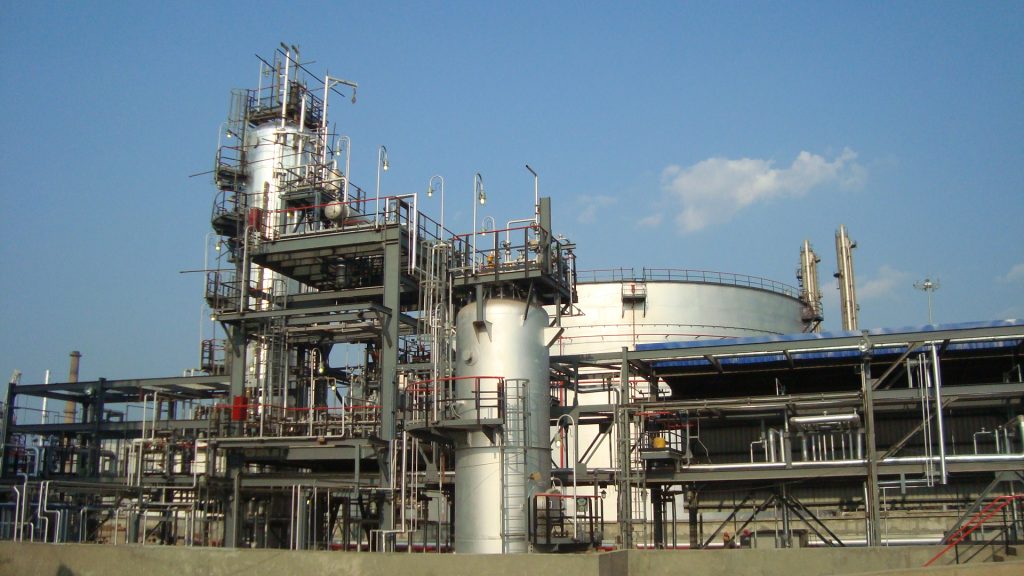Federal Government is considering granting 13 operational licences for the establishment of modular refineries in the South-South region.
This is part of the government’s plans to develop the area and avert crisis in the restive region following the recent threats by Niger Delta Avengers, NDA, to resume attacks on oil installations located there.
A statement by Laolu Akande, Senior Special Assistant to the President on Media and Publicity, Office of the Vice President, listed other plans to include improving the living standards of the people such as increased budgetary allocation to Niger Delta Ministry and the Niger Delta Development Commission, NDDC.
Others are ensuring a speedy take-off of Maritime University in Delta State, commencement of Ogoni Clean-Up Exercise, investments in infrastructure especially construction of N120.6 billion Bonny-Bodo Road and N1 billion Ibaka deep sea port, approval for establishment of Export Processing Zone in Delta State and increased allocation for Presidential Amnesty programme.
The presidential spokesman highlighted budgetary allocations for the region’s programme in 2018, such as N71.20 billion allocation in the 2018 budget to Niger Delta Development Commission (NDDC), N65 billion for amnesty programme and N53.89 billion allocated in the 2018 budget against N34.20 billion provided in 2017 for the Ministry of Niger Delta.
On the Maritime University, Akande said: “The new Maritime University in Okerenkoko, Delta State, has now commenced operations and invited job applications for academic staff. President Muhammadu Buhari administration recently approved an increase in the take-off grant from the N2 billion earlier announced to N5 billion. This sum was included in the 2018 budget under Federal Ministry of Education allocation presented to the National Assembly last week.
“Academic activities are expected to start in the university soon following the completion of the hiring process for professors, readers, senior lecturers, lecturers, assistant lecturers and graduate assistants to teach in the faculties of Science, Maritime Transportation, Maritime Engineering and Technology, Maritime Environmental Management and General Studies.
“The take-off of the Maritime University was one of the major requests tabled before the Federal Government when the Vice President Yemi Osinbajo went on a series of tour to all the Niger Delta states during the year, following President Buhari’s meeting with leaders of Pan Niger Delta Elders Forum (PANDEF) last November.”
On Ogoni clean-up exercise, he said: “In June 2016, the Buhari administration started the implementation of the 2011 United Nations Environment Programme (UNEP) report on Ogoni land devastated by decades of oil spills.
“An Inter-Ministerial committee on Hydrocarbon Pollution Restoration Project (HYPREP) (under the Federal Ministry of Environment) was established. HYPREP has since set up structures in place for the final take off of clean-up and restoration of the region devastated by oil spills. This shows the commitment of the FG to restore the region.
“Eight companies engaged to conduct Demonstration Clean-up Exercises in the four local government areas of Ogoni Land to enable HYPREP select the best and most suitable technology for the remediation work.
“These Demonstrations were recently concluded; the results are being studied by the Governing Council of the Ogoni Clean-up Project.
“HYPREP has also trained 15 indigenous Ogoni scientists on environmental assessment remediation. HYPREP assessed existing water facilities in Ogoni land in line with the UNEP recommendation report that potable water be provided for Ogoni following pollution of water sources in region by oil spills.
“Health impact assessment study to be done to ascertain whether there is a link between some disease patterns and oil pollution in the affected communities.
“Bids have been invited for consultancy on provision of water, health study and environmental remediation.”
The statement explained that Bonny-Bodo bridge and road project is a public private partnership arrangement jointly funded by the federal government and the Nigeria Liquefied Natural Gas (NLNG) on 50 percent.

